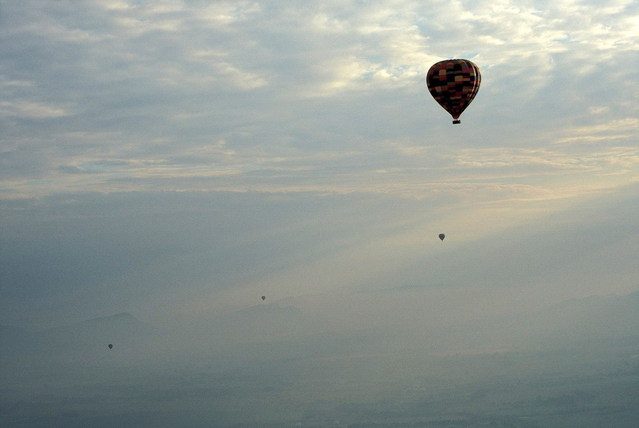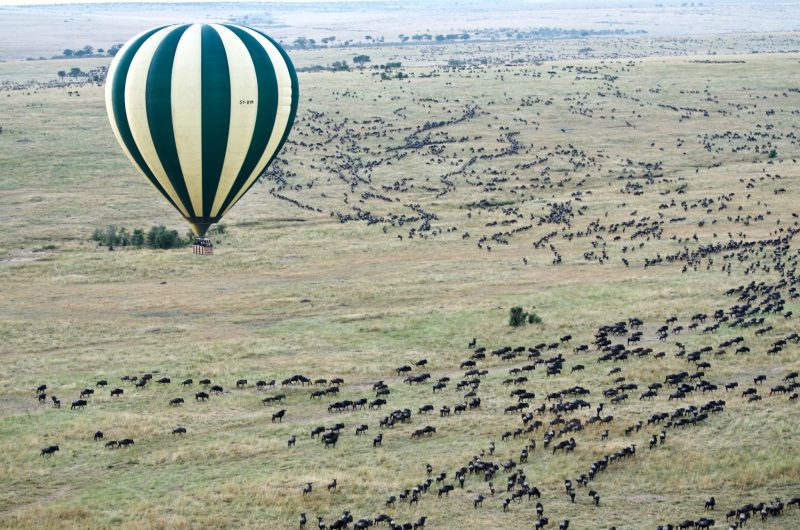Inflating
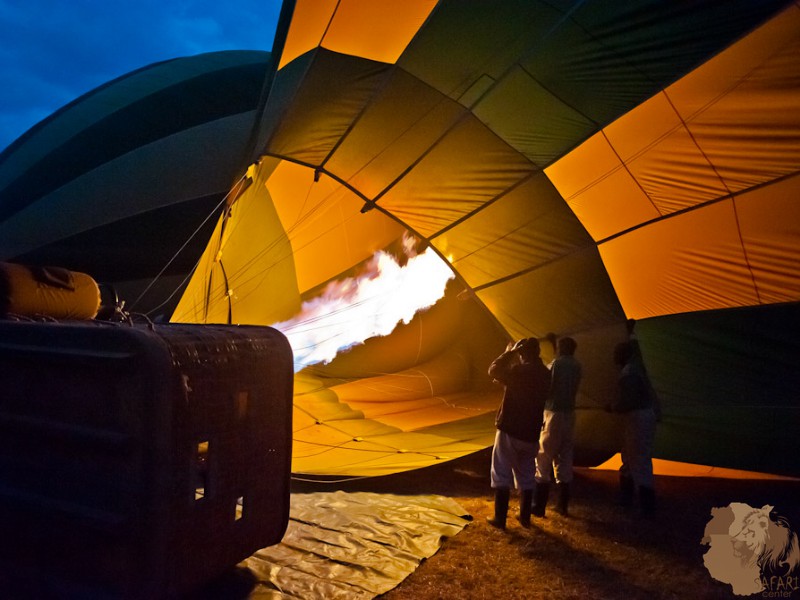
1 Hour Balloon Safari
Once the crew finds an appropriate launching site, they mount the burner on a suspension concentration ring that connects to a metal frame on top of the basket. Then the bottom of the envelope is attached on top of the burner. The rest of the balloon is unwrapped and laid out on the ground, and the crew partially inflates it with cold air using a large portable fan. When there is enough air, they remove the fan and blast the burner flame into the envelope and that inflates the balloon all the way to an upright position. At this point, the pilot steps into the basket to make pre-flight checks. Then the passengers climb into the basket. When the launch crew sets everything up, the balloon is released. This entire process takes about 30 minutes.
Rising
Vertical speed can be accelerated by blasting a massive blaze rapidly. To decrease vertical speed, the air inside is let to contract by opening the parachute valve. If the atmosphere has a lower cooling rate, the climb speed will bleed off the higher it rises. But if the cooling rate of the atmosphere is high, the flight will accelerate.
Steering
The balloon is maneuvered horizontally by catching the wind draft at different altitudes. Speed would also depend on the wind at each altitude, which can be up to 120mph. Therefore, while aloft, the balloon’s horizontal cruise is at the mercy of the wind because its direction and speed are different at different altitudes.
Wind direction
Pilots study the overall wind currents by obtaining a weather forecast report beforehand. Visual clues include flags on poles, smoke from chimneys and watching other hot-air balloons. Good knowledge of aerology is the key to success when it comes to hot-air balloon navigation.
Falling
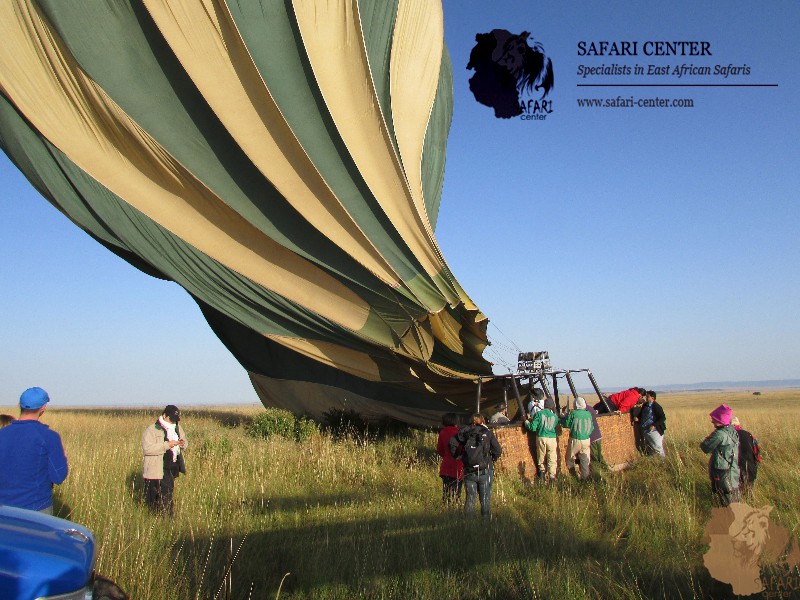
1 Hour Balloon Safari
Falling to the ground or descending is done by completely opening the parachute valve at the top so that hot air escapes and cold air rushes in. The parachute valve is a circle of envelope fabric cut out in the upper part with a cord that runs down through the center.
Landing
It is very rarely possible to determine landing site beforehand since a balloon travels with the wind. The pilot communicates possible landing spots with the ground crew when it is time to land. When it lands, sometimes there is a skid, and the basket may occasionally tip over slightly. However, all of these are safe and reasonable.
Deflating
Landing process consists of deflating and repacking the envelope. The ground crew at the landing site will hold the basket down once landed. Then the ground crew deflates the envelope, detaches it from the basket, folds it and packs it into a carrying bag. The basket and the burner are also separated and packed into the retrieve vehicle.
Breakfasting
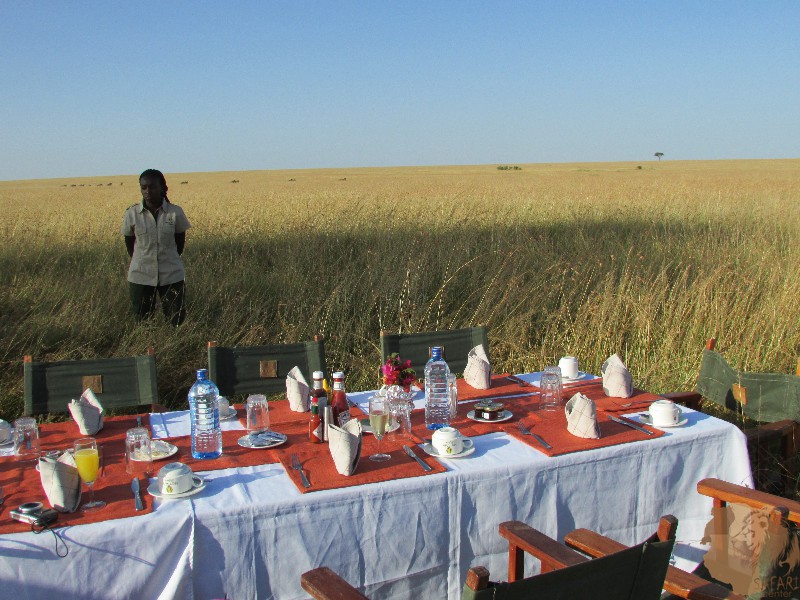 The best and the fun part of the ride happens once the balloon is grounded. A luxurious champagne bush breakfast is served at the landing site in the wild as the ride ends. Maasai warriors who stand guard on all four sides keep their eyes wide open for any wild intruders
The best and the fun part of the ride happens once the balloon is grounded. A luxurious champagne bush breakfast is served at the landing site in the wild as the ride ends. Maasai warriors who stand guard on all four sides keep their eyes wide open for any wild intruders
To receive a colourful digibook about hot-air balloon with videos, images and text, please fill out the following form or simply email us on safaris@safari-center.com


